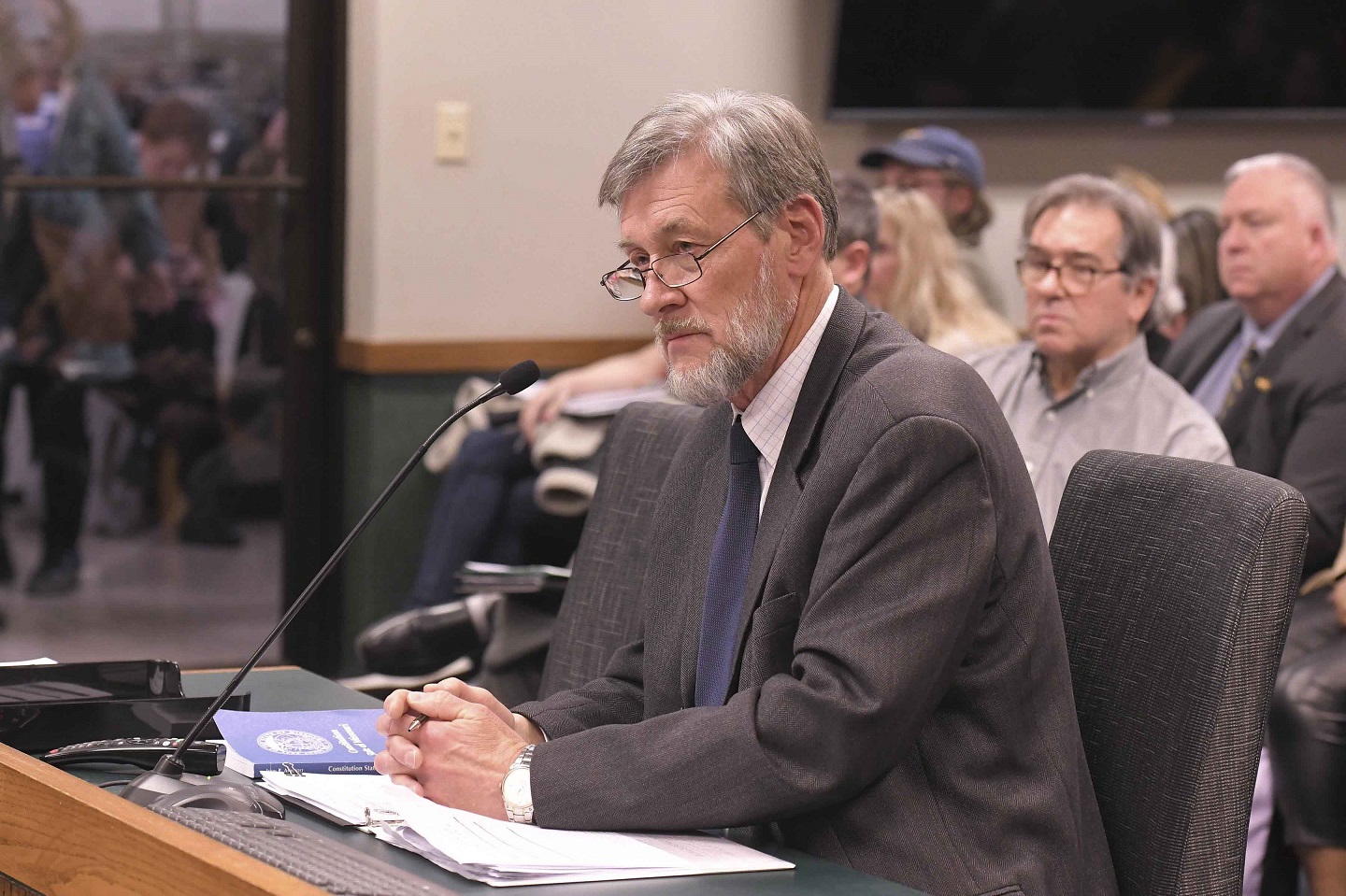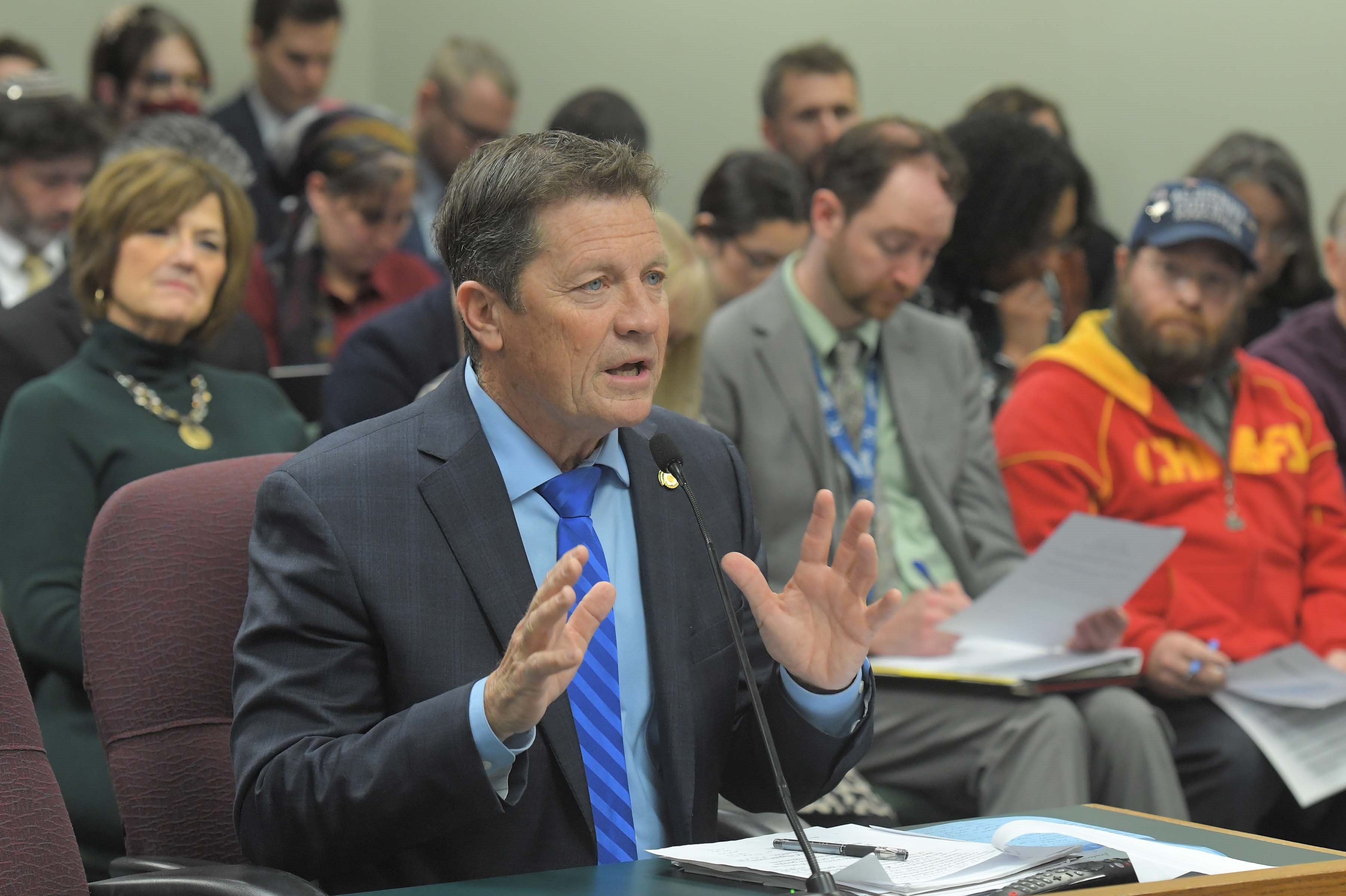A House committee has advanced a plan to create treatment courts in Missouri that would focus on mental health issues, and offer offenders treatment options as an alternative to incarceration. Its bipartisan supporters say it would be a meaningful expansion of the state’s successful treatment courts.

The mental health courts that would be created by House Bill 2064 would be similar to the already existing veteran courts, DWI courts, drug courts, and family treatment courts. In each of those, a defendant must go through a regimen of relevant treatment programs. Those who succeed, or graduate, can avoid prison time or having a crime appear on their record.
“The goal is that they receive treatment to help them overcome, have the tools that they are now aware of, that they’ve experienced, which they have available to them to maintain a lifestyle without the problems that haunted them,” said Representative John Black (R-Marshfield), the bill’s sponsor.
He said this would be a continuation of the existing treatment courts, which are widely viewed as an achievement by Missouri’s legal system and a cost-effective way to avoid incarceration. They allow offenders a chance to remain connected to and active in their communities while working and remaining with families. They are also associated with reductions in crime and the need for foster care, and with ensuring timely payment of child support.
Black noted that perhaps most importantly, “The percentages of those folks who are able to avoid recidivism … with those folks who have actually completed the treatment courts, are very impressive.”
The proposal is one recommendation to come from the Substance Abuse Treatment and Prevention Task Force, created under legislation passed in 2019 and chaired by Black. That task force sought to get a handle on what is happening throughout the state of Missouri and across all agencies, to deal with substance abuse issues.
One of its recommendations was to see that existing treatment courts receive more funding, as well as the creation of mental health treatment courts.
Black said among the existing treatment courts there is already a lot of overlap with mental health.
Black said such courts would likely rely heavily on counseling that is specific to a given defendant’s circumstances, “and it is a tough program. It’s not something that’s easy. They have to invest a lot of effort in completing the program, so if there was a co-occurring problem – substance abuse would be the most likely – then the persons in that program would be referred not only to mental health professionals but also those folks that could help them with their substance abuse problem.”
The bill has been unanimously endorsed by the House Judiciary Committee, where it was praised by members of both parties. Ranking Democrat Representative Robert Sauls (Independence) said this is a subject that needs more attention.
For any who question the effectiveness of the treatment courts Missouri already has, or the desire to expand on them, Black said one need only be present at a graduation. He called them, “inspiring, humbling, you see people who are there fully acknowledging that the program has turned their life around for themselves and their families. They show great gratitude to the elements of the treatment courts, including the prosecutor’s office, they usually organize the effort … it’s one of the things Missouri is doing well.”




